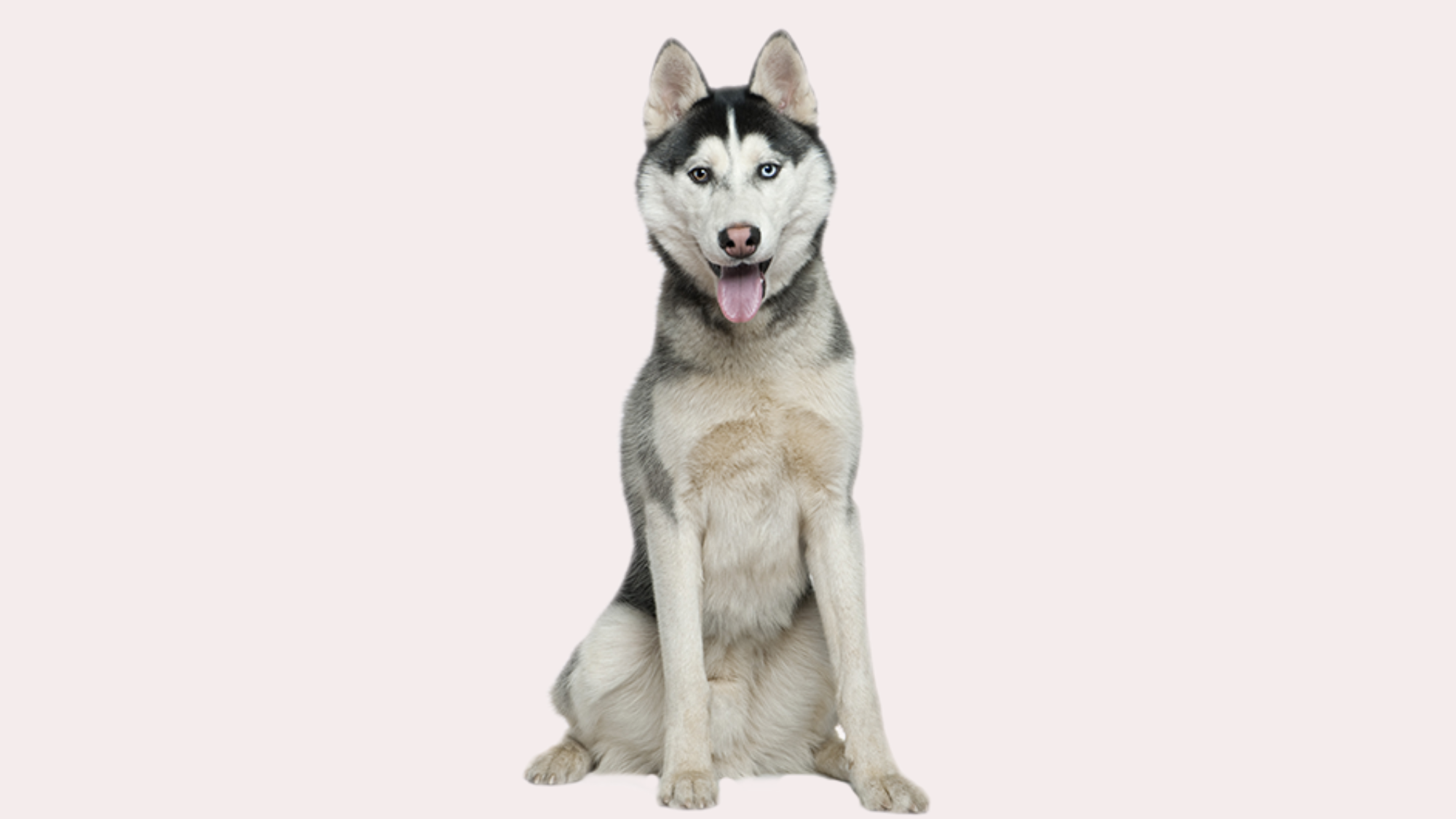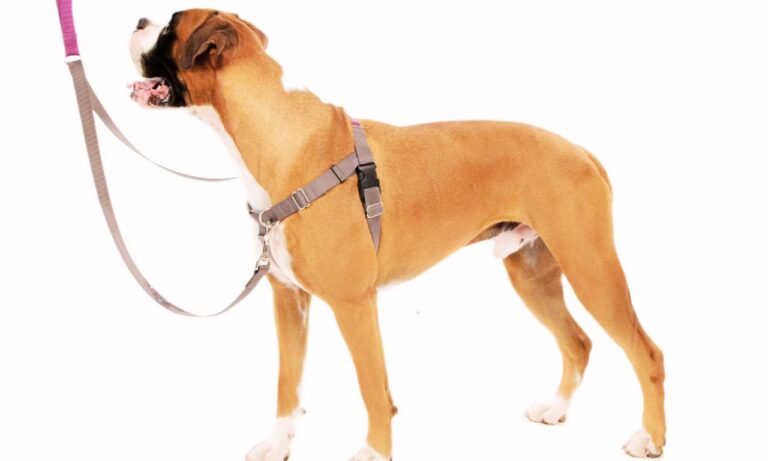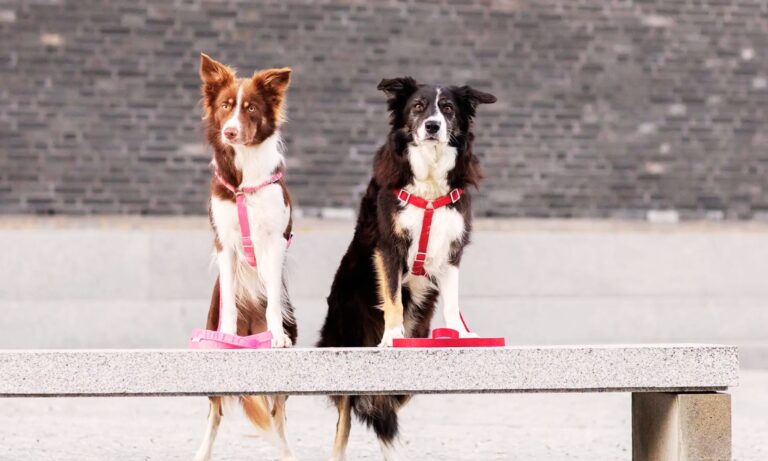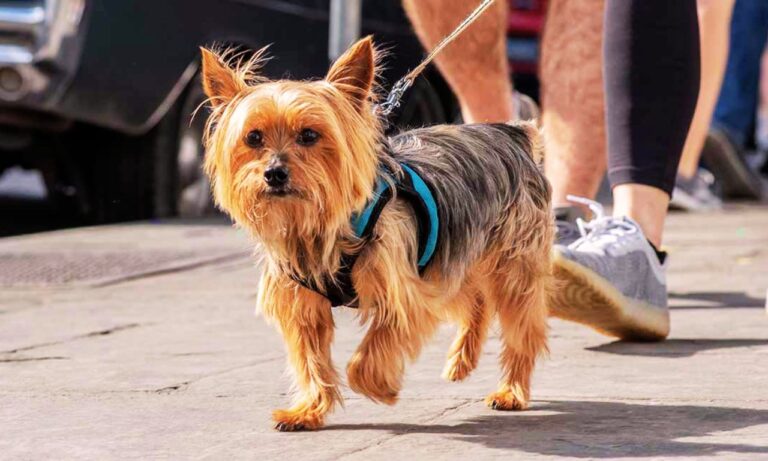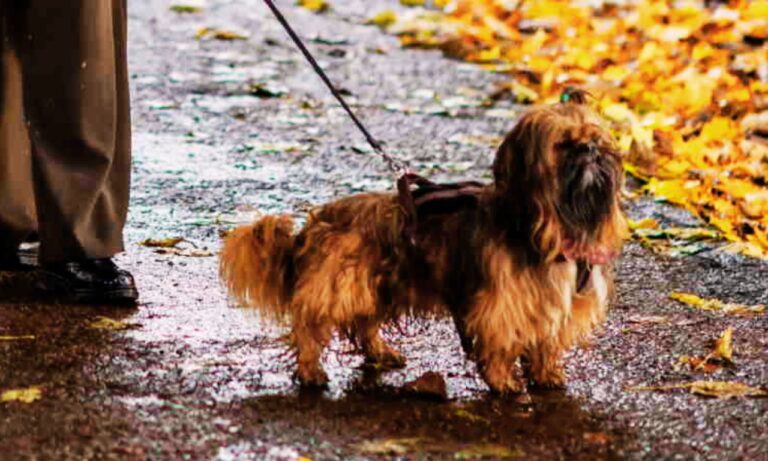When you picture a Siberian Husky, a few things probably come to mind: stunning blue or multi-colored eyes, thick beautiful fur, an energetic trot, and — maybe most famously — that almost human-like friendliness. Unlike some aloof or protective breeds, Huskies seem to love just about everyone they meet. It’s no wonder many owners affectionately call them the social butterflies of the dog world.
But have you ever stopped to wonder why are Huskies so friendly? What made this breed, known for its endurance and strength, evolve to be so open-hearted and outgoing? The answer lies in a fascinating blend of history, genetics, temperament, and even a touch of nature’s design. Let’s dive deep into why Huskies are famously friendly — and why that trait continues to win hearts everywhere they go.
Discover if the American Eskimo is a guard dog and learn about its suitability for protecting your home.
Blog Highlights
ToggleWhy Are Huskies So Friendly: How Their Origins Shaped Their Personality
To understand why Huskies are so friendly, we need to go back — way back — to their earliest roots. Huskies were originally bred by the Chukchi people of Siberia thousands of years ago. These indigenous people lived in incredibly harsh, cold environments where survival was a daily struggle. They needed dogs that weren’t just tough — they needed dogs that were team players.
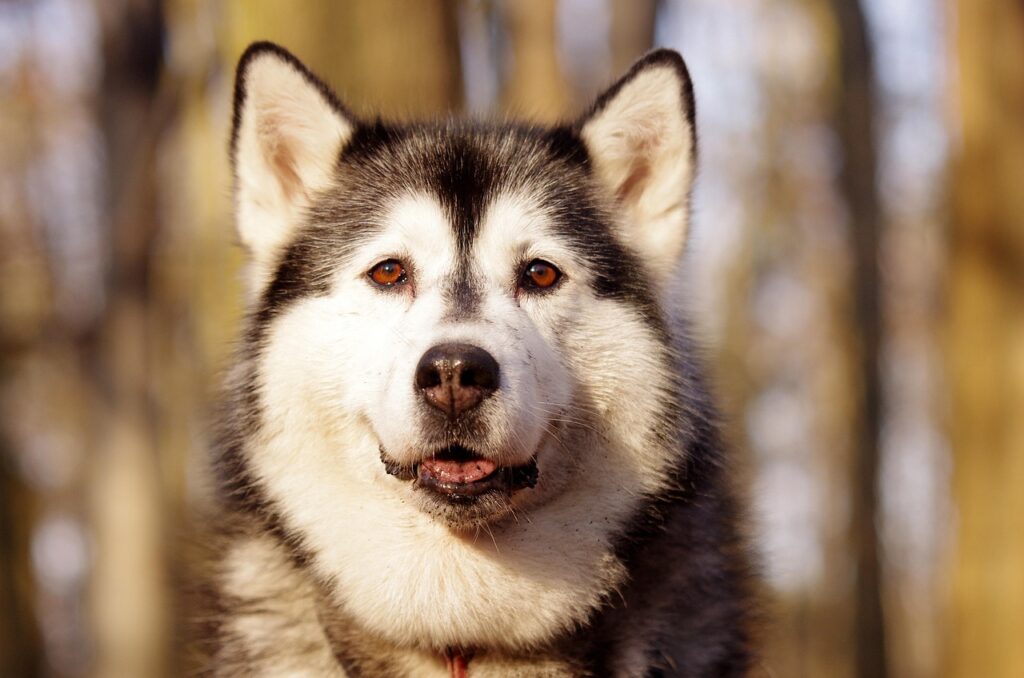
The Chukchi used Huskies primarily as sled dogs, helping them travel across vast frozen landscapes to hunt, gather supplies, and move between camps. But here’s the important part: Huskies weren’t just workers — they were part of the family. They often slept inside the tents with the families, helped keep children warm at night, and lived closely alongside humans.
As a result, the Chukchi selectively bred dogs that were:
- Gentle with humans, especially children.
- Highly cooperative with both humans and other dogs.
- Trusting and sociable, able to live peacefully in large groups.
Over generations, this intentional breeding molded the Husky’s unique personality. Friendliness wasn’t just a “nice bonus” — it was a survival trait.
No Guard Dog Instinct: A Different Purpose
Unlike breeds that were designed to guard property or protect livestock, Huskies were never bred to be suspicious of strangers. In fact, being too aggressive or territorial would have been a major flaw for a sled dog team that had to work cooperatively and possibly meet new people during long journeys.
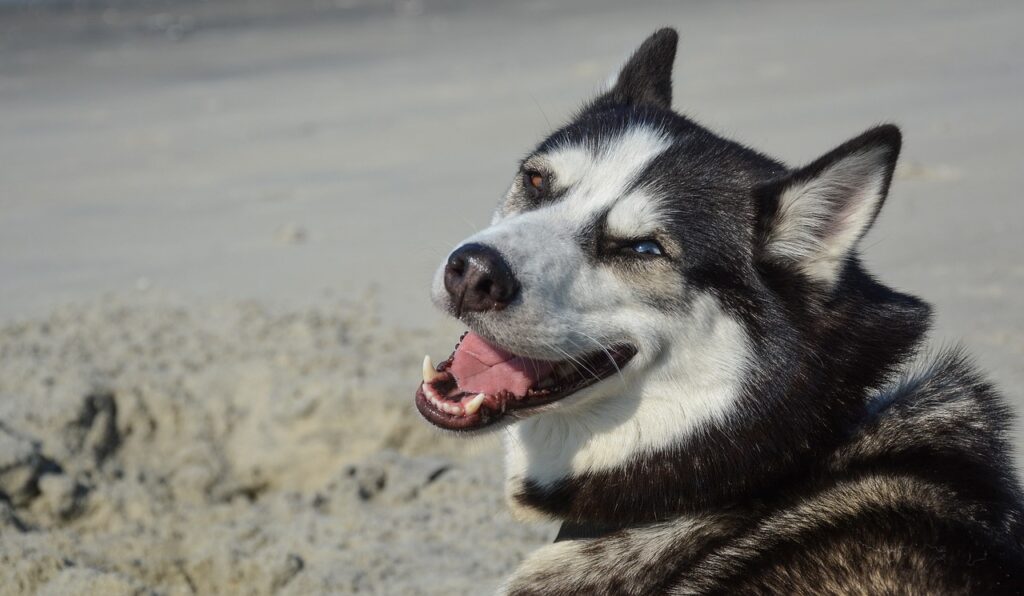
Because of this, Huskies evolved into dogs that are:
- Friendly to strangers (sometimes to a fault!),
- Non-aggressive by nature,
- Trusting and curious rather than suspicious.
That’s why if you’re looking for a guard dog, a Husky is usually a terrible choice. They’re much more likely to greet an intruder with a wagging tail and a playful bounce than a warning bark.
Their history simply didn’t prepare them for territorial guarding — it prepared them for community living and cooperation. Learn about the size collar for an American Eskimo to ensure a perfect fit and comfort for your dog.
Pack Mentality: Built for Social Life
Another big reason Huskies are so friendly is their strong pack mentality.
As sled dogs, Huskies had to work closely in teams, sometimes pulling sleds across hundreds of miles. Success depended on:
- Team coordination,
- Communication between dogs,
- Obedience to a human leader.
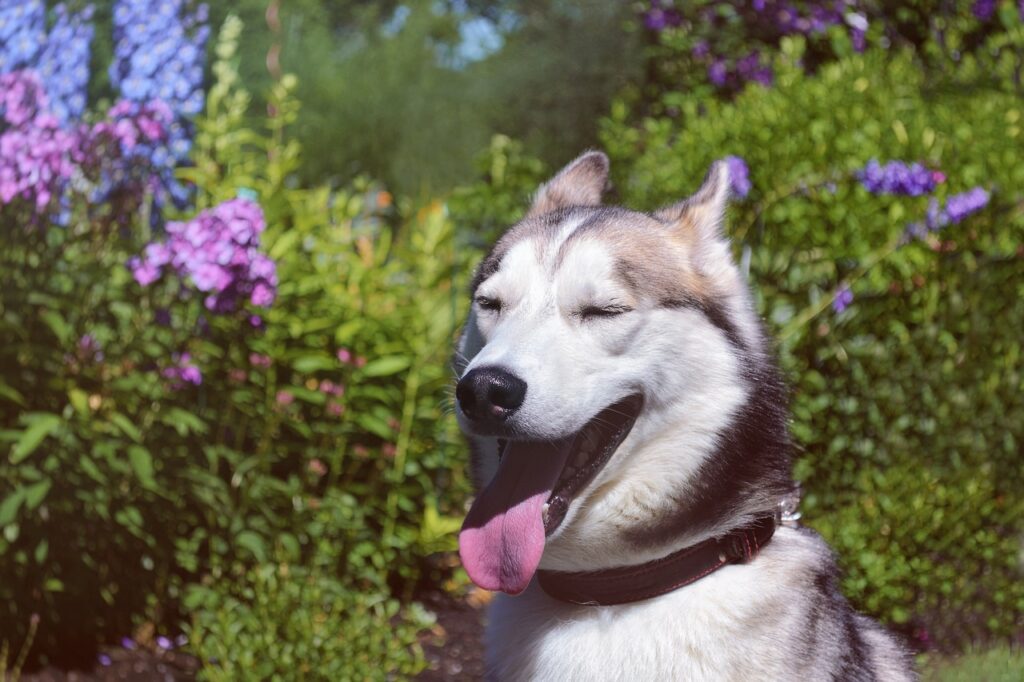
This deep-seated pack instinct makes Huskies naturally social animals. They crave connection — with humans, with other dogs, and even with other animals sometimes. Unlike more independent breeds that prefer solo activities, Huskies thrive when they are part of a group.
This pack-driven nature leads to:
- Affection toward family members,
- Playfulness with new people and animals,
- Low levels of fear or suspicion when meeting others.
If you own a Husky, you’ve probably noticed how much they hate being left alone. Separation anxiety is common because Huskies are literally wired to be around others at all times.
Discover why Afghan Hound collars are wide by exploring the unique characteristics of this breed and how wide collars enhance their comfort and style.
High Energy + Playfulness = Social Butterflies
Huskies are high-energy dogs. They were bred for endurance, not just short bursts of speed. All that energy needs somewhere to go — and often, it spills out in the form of playfulness.
When Huskies meet new people or other dogs, they aren’t immediately sizing them up as threats. Instead, they’re thinking:
“New friend? Playtime?”
Their energy, combined with their love for interaction, makes them naturally outgoing and eager to engage. This can make Huskies seem almost child-like in their enthusiasm, bouncing around, pawing, and play-bowing to new acquaintances.
In short, their friendliness isn’t just an emotional trait — it’s an energetic one too. Find out what style dog collar is best for hounds to ensure comfort and safety for your furry friend.
Intelligence and Confidence: No Fear-Based Aggression
Another fascinating reason why Huskies are so friendly lies in their emotional intelligence.
Huskies are ranked as a highly intelligent breed. Smart dogs are better at reading human body language, social cues, and other dogs’ signals. Huskies tend to be confident and adaptable, meaning they don’t default to fear-based aggression when faced with new situations.
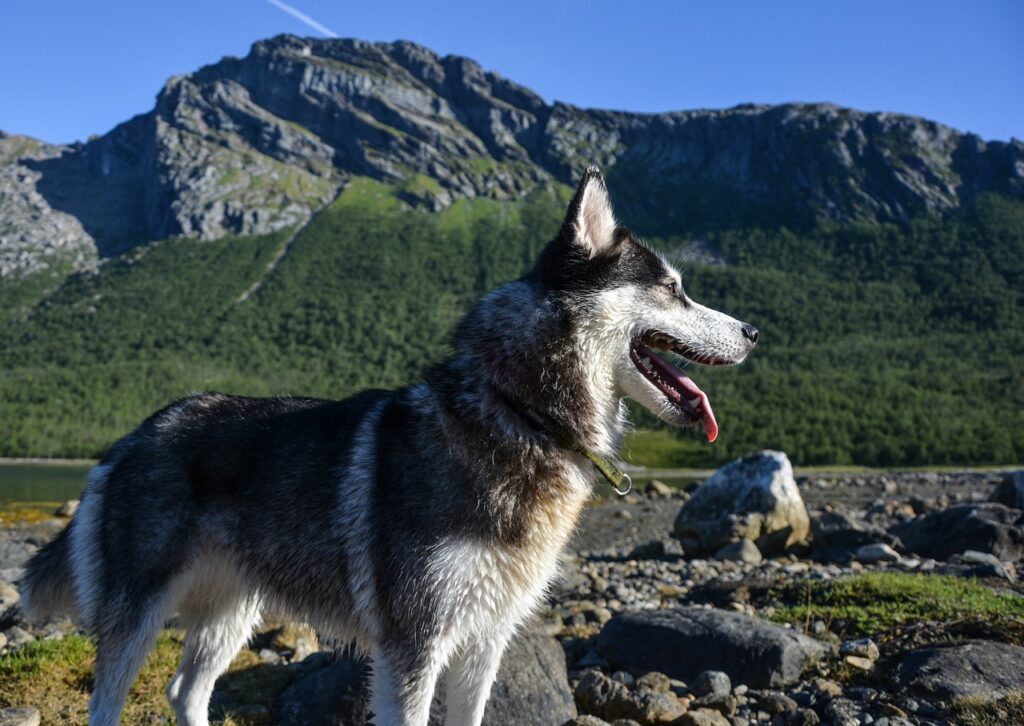
While some breeds respond to unfamiliar situations with caution or even fear, Huskies often respond with curiosity. Their self-confidence reduces the chances of defensive behavior and increases their odds of acting friendly, playful, and open.
This is also why Huskies tend to do so well in busy environments like dog parks, hiking trails, or city walks. They’re mentally equipped to handle lots of stimulation without getting overwhelmed or defensive.
Selective Breeding for Modern Companion Traits
While Huskies have ancient working roots, today’s Huskies are also the result of modern selective breeding.
As the breed gained popularity in the 20th century — especially after their fame grew from events like the Great Serum Run to Nome — breeders began selecting Huskies not only for working ability but also for temperament. Families and pet owners wanted Huskies who were:
- Affectionate,
- Gentle with children,
- Sociable with other dogs and pets.
Because of this, many modern Huskies are even more people-oriented than their ancestors. While the working drive remains strong in many lines, today’s companion Huskies are often bred with friendliness and approachability in mind.
The result? A breed that almost seems predisposed to love everyone.
The ideal size collar for English Springer Spaniel typically ranges from 14 to 20 inches, depending on the dog’s age and neck size, ensuring a comfortable and secure fit.
A Wolf-Like Appearance — But the Opposite Personality
It’s ironic: Huskies look more wolf-like than many other breeds. With their sharp eyes, pointed ears, and thick coats, they can easily be mistaken for wild animals.
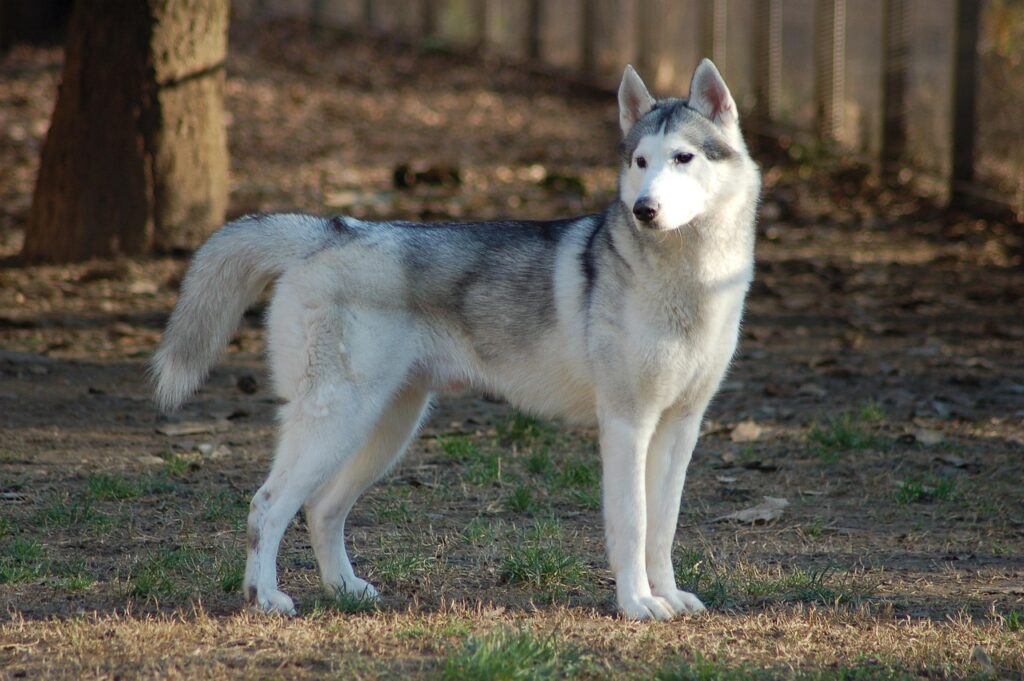
Yet, despite their intimidating appearance, their behavior is anything but wild. In fact, wolves are typically shy and wary of humans, while Huskies are gregarious and outgoing.
This mismatch between looks and personality is part of the Husky’s unique charm. They carry the majestic beauty of the wild but have the soul of a joyful companion.
Common Misunderstandings About Husky Friendliness
Of course, friendliness doesn’t mean obedience.
One important thing to know is that Huskies, despite being affectionate and social, are also independent thinkers. They were bred to work semi-autonomously in sled teams, often making their own decisions during long runs.
This independence means:
- They might ignore commands if they don’t see a reason to obey.
- Their recall (coming when called) can be notoriously unreliable.
- They love people — but they don’t always listen to them.
So while Huskies are undeniably friendly, that friendliness doesn’t automatically translate into eager-to-please behavior like you might see with, say, a Golden Retriever.
In other words: they’ll shower you with kisses, but they might still run the other way if they spot a squirrel!
Tips for Encouraging a Husky’s Natural Friendliness
If you have a Husky or plan to adopt one, here’s how you can nurture and guide their natural friendliness:
- Early socialization: Expose your Husky to lots of people, animals, sights, and sounds from a young age to reinforce their positive associations.
- Positive reinforcement training: Use treats, toys, and praise to teach commands. Harsh punishment can damage their trusting nature.
- Regular exercise: A tired Husky is a happy, well-behaved Husky. Aim for at least 1–2 hours of vigorous exercise daily.
- Group activities: Huskies love group hikes, dog parks, and social outings. Lean into their social instincts.
By providing structure, training, and plenty of social outlets, you can help your Husky’s natural friendliness shine even brighter. The recommended size collar for an English Cocker Spaniel usually ranges from 12 to 18 inches, providing a snug and comfortable fit for your dog.
Final Thoughts: A Breed Built for Connection
So why are Huskies so friendly? Because everything about their history, design, and temperament points toward openness, trust, and sociability. From ancient sled teams to modern family companions, Huskies have been shaped by generations of cooperative living, energetic playfulness, and an unbreakable bond with their human partners.
Owning a Husky means embracing their joyful, outgoing spirit — even when it leads them to try to “befriend” every person and dog they see. Their friendliness isn’t a fluke. It’s a defining trait, a beautiful gift from centuries of human-canine partnership.
If you ever feel overwhelmed by your Husky’s endless energy or cheeky independence, just remember: you’re living alongside one of the most naturally loving, social, and vibrant dog breeds on Earth. And that’s something truly special.
To find the perfect fit, learn more about what size collar for a Bichon, ensuring your dog’s comfort and safety.

